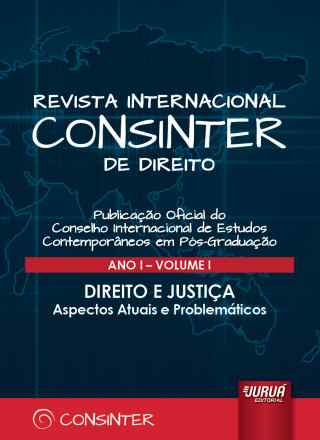Violência contra as mulheres no contexto pandêmico COVID 19: reflexões críticas acerca da intervenção do estado na proteção das mulheres vítimas de abusos domésticos
Revista Internacional CONSINTER de Direito
Violência contra as mulheres no contexto pandêmico COVID 19: reflexões críticas acerca da intervenção do estado na proteção das mulheres vítimas de abusos domésticos
Autor Correspondente: L. A. Santos | [email protected]
Palavras-chave: Violência contra a mulher, Pandemia, Covid-19, Proteção do Estado
Resumos Cadastrados
Resumo Português:
O presente artigo aborda a questão da violência contra as mulheres no contexto da pandemia da Covid-19, problematizando a efetividade das intervenções estatais na proteção da mulher em casos de violência de gênero. A hipótese de pesquisa é que o isolamento social e as dificuldades enfrentadas durante a pandemia intensificaram a vulnerabilidade das mulheres, exigindo maior atenção do governo. Empregou-se o método dedutivo e como procedimento metodológico, foi realizada uma revisão de literatura em repositórios como Google Acadêmico, Scielo e banco de teses e dissertações com termos de inclusão: violência contra a mulher; violência familiar; coronavírus; covid-19; lei 11.340 e proteção do Estado. A relevância do presente estudo está no fato de que a vulnerabilidade da mulher aumentou muito no cenário da pandemia mundial, uma vez que medidas de isolamento social contribuíram de diversas maneiras para que esta situação se agravasse, requerendo ainda mais atenção por parte do governo na prevenção e punição dos agressores. Foi possível concluir através do presente estudo que a pandemia trouxe problemas sociais e de ordem financeira para milhões de pessoas em todo mundo, e que o isolamento social imposta como forma de reduzir os seus riscos, agravou a violência feminina, cujos casos de subnotificação ficaram ainda mais evidentes pela dificuldade de acesso aos transportes públicos, falta de opções de acolhimento e dependência do conjugue. A situação poderia ser minimizada com maior comprometimento do Estado, comunicação mais eficiente, a qual poderia ser feita através das redes sociais, e ações mais comedidas por parte do judiciário brasileiro em prol da soltura e proteção de bandidos, os quais fatalmente representarão maior risco da ocorrência de violência e feminicídio ao voltarem para suas companheiras.
Resumo Inglês:
This article addresses the issue of violence against women in the context of the Covid-19 pandemic, problematizing the effectiveness of state interventions in the protection of women in cases of gender violence. The research hypothesis is that social isolation and the difficulties faced during the pandemic have intensified women's vulnerability, requiring greater government attention. The deductive method was used and, as a methodological procedure, a literature review was performed in repositories, such as Google Scholar, Scielo, and database of theses and dissertations with inclusion terms: violence against women; family violence; coronavirus; Covid-19; law 11.340 and protection of the State. The relevance of the present study lies in the fact that the vulnerability of women has greatly increased in the scenario of the global pandemic, since social isolation measures have contributed in various ways to worsen this situation, requiring even more attention from the government in the prevention and punishment of aggressors. It was possible to conclude through the present study that the pandemic has brought social and financial problems to millions of people around the world and that the social isolation imposed to reduce their risks, has aggravated female violence, whose cases of underreporting were even more evident by the difficulty of access to public transport, lack of foster care options and dependence on the spouse. The situation could be minimized with greater commitment from the State, more efficient communication, which could be done through social networks, and more measured actions by the Brazilian Judiciary in favor of the release and protection of bandits, who will fatally represent a greater risk of the occurrence of violence and femicide when they return to their companions.

